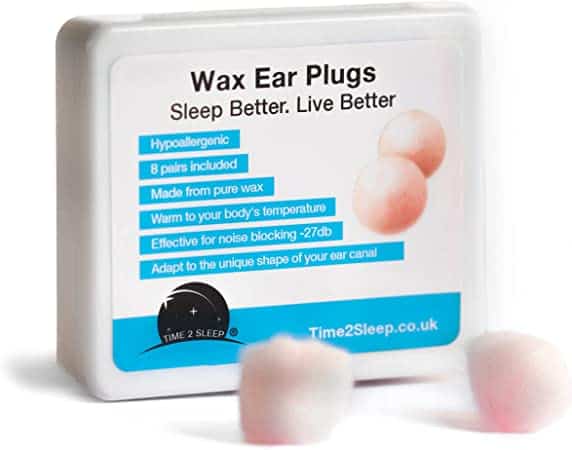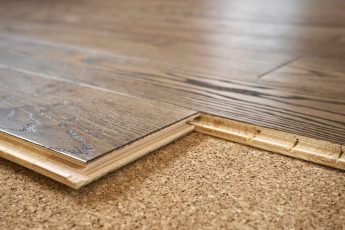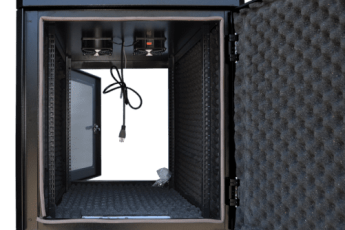Snoring is caused by the fact that air cannot freely pass through the nose and throat when you are sleeping. This causes the surrounding tissues to press against one another and cause vibrations. People with larger tissues in their throats and noses are more likely to snore. Some treatments for snoring include using ear plugs or earmuffs. Using an anti-snore pillow can also help.
Using earplugs
Snoring can be loud, and many people use earplugs to block the noise while sleeping. They are also helpful for other reasons, such as when using machinery around the house, hunting, or riding a motorcycle. Even if you are wearing a helmet, wind noise can be harmful to your ears. Using earplugs can help you get a good night’s sleep without being bothered by your partner’s snoring.
Using earplugs can be an inexpensive and simple solution to the problem of snoring. Several kinds of earplugs are available in the market, with different materials and customizable ear tips. Most earplugs are designed to block the noise to a certain extent, but some may allow a small amount of noise through.
The most important consideration when choosing an earplug is the comfort it provides. It may be necessary to try a few to find the one that fits perfectly. The size of the ear canal and the position in which a person sleeps also determine the proper fit for an earplug. However, noise reduction ratings (NRR) will tell you how well the earplugs will block noise. The higher the NRR, the better the noise reduction. Make sure to check the NRR rating and the price before making a purchase.
There are a few things you should know before using earplugs for snoring. First of all, ear plugs are uncomfortable. They block the ear canal and can be claustrophobic. It is important to find a comfortable ear plug so that you can sleep soundly.
Second, earplugs can cause ear infections, especially if you have a latex allergy. These infections are very serious and can lead to permanent hearing loss. The most effective earplugs are made of silicone or wax, which rest at the entrance to the ear canal and don’t block the ear canal. These plugs can be expensive and may not fit your ear canal.

Finally, earplugs should be used according to the manufacturer’s instructions. Depending on the type of plug you use, you may find that they work better than you expected. Just remember to follow the directions on the package and wash them after each use. If you experience any problems or complications while using earplugs, consult your doctor immediately.
Using earmuffs
Earmuffs are worn over the ear to block noises, but they can have side effects. They can cause pressure in the ears and dizziness. They can also obstruct hearing high-frequency sounds, which can lead to infections.
Earmuffs are a good choice for people who work in loud environments. They can also be used to cover up a partner’s snoring, especially if you are sleeping next to each other. People can also wear earplugs while using machinery around the house or when watching sporting events. Earmuffs can even help protect the ears of cyclists when riding motorcycles, since wind noises can be very damaging even when wearing a helmet.
In addition to earplugs, a pair of headphones can help block the noise. Although earplugs are not completely effective, they can reduce the amount of noise during the night. They are inexpensive and will not disturb the sleeper. However, if you want to block snoring noises completely, you should consider using custom-made hearing protection. Snoring sounds are up to 80 decibels louder than traffic noise, while normal conversation is between 40 and 50 decibels. Since the low frequency of snoring sounds is transmitted through the bones of the body, even optimal hearing protection cannot completely block them.
High-quality earplugs and earmuffs can reduce snoring noises by about 40 decibels. They have a notch at 2000 Hz which is correlated to the resonance frequency of the ossicles. This frequency band is important for speech intelligibility.
Aside from blocking snoring noises, earmuffs can also reduce the frequency of your partner’s sleep apnea. If you have a partner who snores, it can be difficult to get a good night’s sleep. Sleep deprivation can result in resentment and guilt.
Using music to distract yourself from snoring
Using music to distract yourself from slumber is an effective treatment for snoring. The effectiveness of this technique is based on studies done by different researchers. Ojay came up with the idea in 1997 after a friend told him that his snoring was so bad that it led to the breakup of their previous relationship. He suspected that his snoring was caused by a lax soft palate that produced loud acoustic vibrations with each breath. He wondered if he could tone his palate so that it would be better able to resist the force of air during sleep.

Besides the physical benefit, listening to music for sleep also has psychological benefits. It makes you feel relaxed, which in turn can help you sleep. The important thing is to make sure that you use good headphones to listen to the music. This way, you won’t disturb other people in your room, especially if your room is noisy.
Another way to block out snoring sounds is to listen to the sounds of nature while you sleep. You can also use sleep apps to block out snoring noises. Alternatively, you can sleep in a different room. This is an option for those who don’t have the budget to purchase expensive snore-blocking headphones.
The researchers designed the survey to measure people’s use of music to help them sleep. The survey included four self-report scales and custom-written mixed methods response questions to determine the frequency of use. The study also included open text responses, allowing participants to provide additional information regarding the use of music.
Chronic snoring can affect a person’s cognitive performance, decision-making skills, and emotional state. Ultimately, it can even lead to heart disease and other health issues. It’s important to take steps to address this condition as early as possible.
Using an anti-snore pillow
Using an anti-snore sleep pillow can be very effective at reducing or even eliminating snoring noises. Snoring noises can disturb your sleep and disturb your bed partner’s. These pillows are designed to support your neck and align your spine, which reduces the vibration of the soft tissue that causes snoring.
Most anti-snore pillows come with a breaking in period, during which the pillow will conform to your body’s shape. Some pillows may need to be replaced once a year, while others may require only occasional use. A good pillow will take some time to adjust, but it will improve your sleep and help you to stop snoring.
Anti-snore pillows come in a variety of styles and designs and have multiple levels of support and firmness. Many of these pillows have memory foam or other high-quality material that will support your neck and open air passages.

Another popular option is the Smart Nora. This device uses a positioning monitoring device to help you find the most comfortable position. A smart-learning algorithm helps it adjust the intensity and frequency of the vibrations. The Smart Nora also works with a pillow insert that inflates when you’re in an uncomfortable sleeping position, which can be helpful if you suffer from sleep apnea.
There are various other snoring remedies, including using a pillow that elevates the head of the bed. It’s also a good idea to avoid sleeping on your back, as it increases the chances of partially blocking airflow. It’s a good idea to keep a healthy weight, too, as alcohol and smoking both interfere with sleep.
Using an anti-snore earplug to block snoring noises can be beneficial for people suffering from chronic snoring. Studies have shown that up to 25 percent of adults snore at least once in their lifetime. Therefore, using an anti-snore ear plug is an effective way to reduce the impact of loud bedmates.





